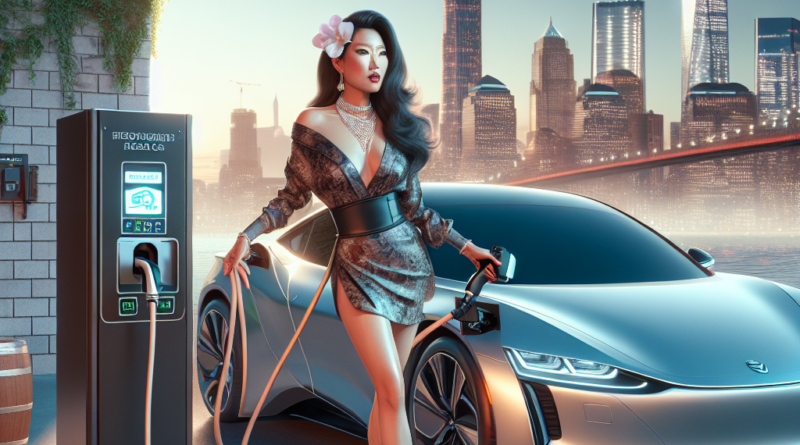Incentivizing Electric Cars: A Gift for the Wealthy? The U.S. Experience
The Controversy Surrounding Electric Vehicle Subsidies in America
Electric vehicles (EVs) have become one of the most heavily subsidized products in America.
Federal taxpayers contribute $7,500 each time a new eligible electric vehicle is purchased, with state and local taxpayers adding an additional $1,500 per EV purchase.
Billions of dollars are also being “invested” by politicians in the construction of electric vehicle infrastructure.
Despite these budget-busting concessions, the Biden administration remains unsatisfied.
Recently, rules regarding EV tax credits have been expanded to include more vehicles, but maintaining peculiar commercial sourcing rules that are likely to lead to additional tariffs from China.
Biden’s Uncertain Approach to EV Subsidies
Since the beginning, President Biden’s uncertain approach to EV subsidies has damaged the economy without strengthening environmental efforts.
In 2022, the President stated, “Thanks to American ingenuity, American engineers, American autoworkers…
if you want an electric vehicle with long range, you can buy one made in America.” Prices were already soaring, with taxpayers having to support these costly purchases.
Kelley Blue Book estimates the average price of a new EV to be over $65,000, compared to $48,000 for gasoline cars.
Biden has imposed requirements for EVs to be assembled in North America, further driving up costs for taxpayers and consumers.
Biden’s rules make production costs prohibitive by limiting the use of foreign minerals (e.g., graphite) that could be used in EVs eligible for tax credits.
The administration has granted a grace period for graphite sourcing but has introduced stricter rules to measure the origin of critical vehicle minerals.
The Impact of Biden’s Policies
The net effect of these confusing new rules is to expand the number of vehicles eligible for EV tax credits while increasing compliance costs, ultimately transferred to taxpayers and consumers.
Instead of linking absurd rules to a complex and costly program, the Biden administration should start over and eliminate the tax credit.
EV subsidies benefit the wealthiest Americans at the expense of their less affluent neighbors.
Studies show that EV buyers tend to have significantly higher incomes compared to the average population, with EVs being a rare sight in lower-income communities.
This surprising regressivity ensures that subsidies do not effectively drive the green transition.
Wealthy Americans primarily purchase EVs as secondary vehicles, leaving them in the garage for occasional use.
They still predominantly use conventional cars, resulting in less substitution between gasoline and electricity than expected.
This leads to additional pollution through the increased production of EVs without corresponding reductions in driving emissions.
A Harvard study from 2022 suggests that switching from gasoline to electricity could actually increase overall emissions in some cases, a far cry from the anticipated outcome by “green” activists and politicians.




